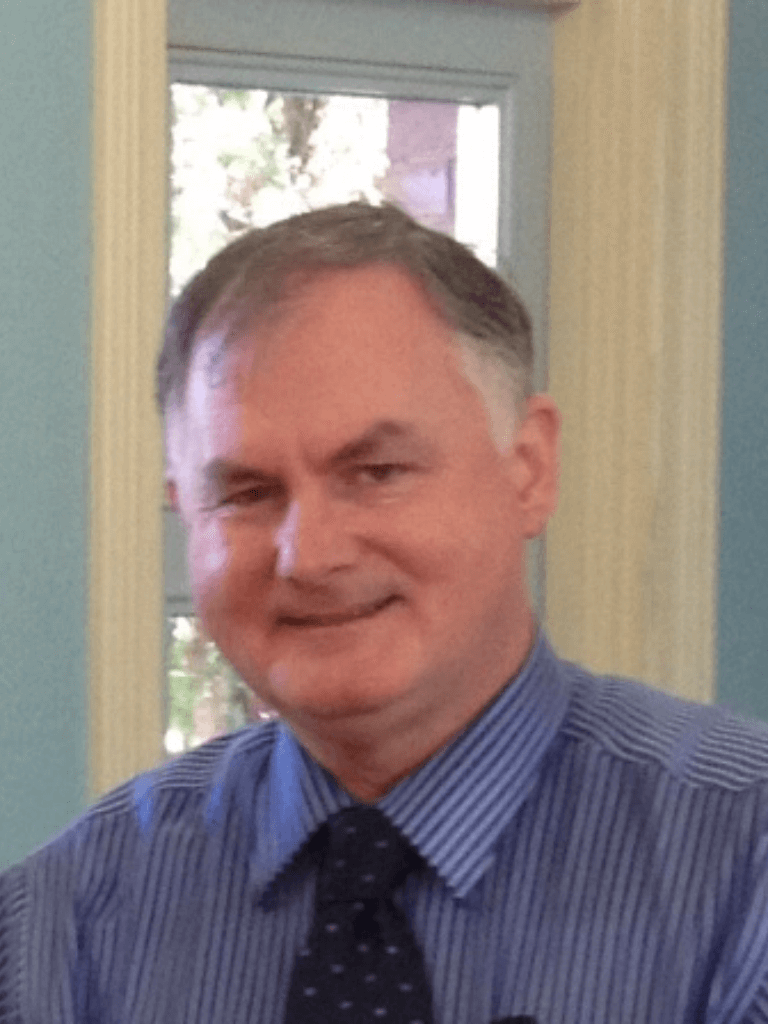Personal and Professional Transformation

“And did you get what
you wanted from this life, even so?
I did.
And what did you want?
To call myself beloved, to feel myself
beloved on the earth.”
“Late Fragment” by Raymond Carver
From: A New Path to the Waterfall, Atlantic Monthly Press, 1989.
As the last month of the calendar year finally arrives and we collectively celebrate the end of one year and the start of a new year, Raymond Carver’s question is so pertinent. As you look over the year that has been, ask yourself: “was it the year that should have been?” In other words, when you go back to your wish list of dreams on 1 January of this year, “did you get what you wanted from this life, even so?” It is a wonderful question and turns our focus to purposeful self-reflection and to personal and professional transformation.
Why is this important? Purposeful self-reflection usually leads to self-regulation. The ability to have a review of one’s life and all the components that makes up a life, creates the road map that can lead to self-improvement. The reason as to why this is important to do periodically, was best captured by Stephen Covey. “Anything less than a conscious commitment to the important, is an unconscious commitment to the unimportant” (Covey. S. R., Merrill. R. A., Merrill. R. R. (1994). First Things First. New York: Simon and Shuster. p.32).


If you don’t care about your own personal and professional success why should others, especially an employer.
Of course, if you have never taken the time to set goals that are SMART at the start of the new year, most likely as part of your new year’s resolutions, then how do you know if you have ever achieved them or even came close to achieving them? The key is in the SMART goals, as this keeps them sharp and achievable.
SMART goals are:
Specific
Keep the goals to just one point of focus. The more singular the focus, the sharper and more ‘doable’ they will be.
Measurable
Build into your goals some means by which you will measure your success. It must be meaningful to yourself.
Achievable
There is always the temptation at the start of a new year to be overly ambitious. Make sure that they can be achieved within a skillset you either have or will acquire and can be progressively worked upon in order to achieve the goal.
Realistic
This is very much related to achievable. Simply if the goal is not realistic to you in your context and with your skillset, it will become near impossible to achieve. Another way of thinking about the notion of setting a realistic goal is to ask yourself this question. What is the likelihood of you working constantly, say 30 minutes a day or for three days a week for the next month on a goal? Why you might ask, does this set the standard for a ‘realistic SMART goal’? The answer can be found in Neuroscience. According to Eric Jensen in ‘Fool Proof Strategies To Jump Start Any New Habit’, the research from Neuroscience indicates that a series of repeated behaviors, over a sustained period of time, is required to change to the new habit and solidify it as common practice. Typically, self-improvement means changing habits.
Timely
The goal cannot be endless. Eternity is the absence of time. You are not writing a goal that is eternal, it is to be achieved in the here and now, the present moment or a future present moment in the new year. You should recalibrate your SMART Goals at least on an annual basis. They must not be timed beyond one year. Highly effective goals will be set to be achieved this year and then be broken into sub-goals that are timed out into days, weeks and months to be achieved.
You will find setting SMART Goals an immensely practical way to put in place a Personal Plan. To ensure you have a road map for self-improvement and indeed professional improvement really requires a Personal Plan. This author has been keeping a Personal Plan since 1988. The template that has been used can be found here.
There are 6 key areas to the Personal Plan that this writer uses and yes, they can blend into each other. For example, Health / Well-Being may have a connection with Inner Life and Well-Being and both might lead to Study – Formal / Informal or impact Career or even Wealth Creation (hard to achieve if you’re always unwell) and all of these areas will impact Family / Friends. Personally, the one area that is the foundation for success in the others is Inner-Life and Well-Being.
The ‘6 Key Areas’ are:
- Family / Friends
- Health / Well-Being
- Study–Formal / Informal
- Career
- Wealth Creation
- Inner-Life and Well-Being
The Personal Plan underpins an absolutely essential component of personal and professional success. If you don’t care about your own personal and professional success why should others, especially an employer. A mantra that can work well with improving yourself personally and professionally is: “You are as you do. You do as you are.” You are successful because you did something about your success. Your personal plan for success has led to the success you are. This is worth remembering when others around you ask: Why are you doing all that? If you’re good enough you’ll get the job anyway, won’t you? You’ve got a degree, you should get a job now, shouldn’t you? Also keep in mind that people who ask such questions probably won’t be competing against you for the same job and are unlikely to do sufficient preparation for a job interview.
How does this relate to work inside a Government agency? Success usually builds on success. Your success in your career happens within the organisation you work for. It allows you to claim a true sense of belonging to this organization and to your team. Successful people usually become well known throughout the Government agency and indeed throughout the profession they work within.
Ultimately SMART Goals are not just about changing habits but mindsets as well. That is where the connection between personal transformation and professional transformation intersect. This was highlighted by Anna-Lucia Mackay (2015) in her excellent book, ‘The Four Mindsets: How to Influence, Motivate and Lead High Performance Teams.’ available from Amazon.
What are the ‘Four Mindsets’ Anna-Lucia Mackay identified, that lead to professional and personal transformation? In a nutshell they are:
- The Emotional Intelligence Mindset
According to Anna-Lucia Mackay, this is about triggering inspiration, respect and trust within the team. It starts with you, the leader, being self-aware and able to self-manage.
Comment: This means embarking on inner-work for yourself first and foremost, which was part of the Personal Plan mentioned earlier.
- The Connection Mindset
Anna-Lucia Mackay sees this as triggering connection, care and understanding within your team. It involves understanding how connections are made, what makes people work, how to connect people to the business and the business to people. It involves understanding how to create that connection and maintain it, even in challenging moments.
Comment: Successful teachers know how to create a connection with their students. It starts with knowing your students, that’s a given. Before the teacher gets that far, they first need to have an understanding of themselves as a person and what they are bringing into the classroom. Again, your personal transformation, your inner-life effects your work life. Simply, you must have a connection with yourself before you can have a connection with others.
- The Growth Mindset
Anna-Lucia Mackay puts forth the idea that this triggers confidence, learning and growth in your team. This involves teaching confidence, sharing the knowledge and vision for the team by training them and building their capacity. That means understanding how each person on your team thinks and this means being a coach and mentor for the team.
Comment: In the Personal Plan for personal transformation, is the area of ‘Study – Formal and Informal’. For personal growth and transformation to occur, you must be learning anew each day. Education truly is power and truly is transformative. If this is happening at the personal level, then you are already ‘walking the talk’ with your team and the outcomes are likely to be surprising. You want your team to grow professionally because it is likely to flow into their personal life and empower them accordingly. Just as you will need to be a coach and mentor to the team, it is important that you have your own coach and mentor also.
- The Performance Mindset
For Anna-Lucia Mackay, this is about triggering focus, accountability and achievement within the team. This includes recruiting the right people to the team and aligning / onboarding them to the team also. It also means having the focus on the right things with accountability for success and failures ( knowing that both bring opportunities for learning). Consider with the team what a performance review might look like in your team’s context.
Comment: All of the components of the Personal Plan are designed to bring key aspects of your life into sharp focus, whilst the Personal Plan is also a mechanism for personal accountability to yourself. Constantly aligning and re-aligning yourself, centering and re-centering yourself, especially your inner-self, is key here. Performance comes from being the best iteration of yourself each and every day.
So your Personal Plan, laced with SMART Goals, can be habit changing and transformative. It aligns wonderfully with the 2015 work of Anna-Lucia Mackay in ‘The Four Mindsets: How to Influence, Motivate and Lead High Performance Teams’. The establishment of mindsets feeds professional success and the road map for personal transformation from the Personal Plan.
So, as the current year comes to an end and the hopes and promises, the beauty and blessings of a year ahead emerges on your horizons, consider your Personal Plan and how you will change your habits and use mindsets to achieve personal and professional transformation. Why should you focus on creating the best iteration of yourself on a daily basis and how will that help you in the workplace? To answer that, turn to the great poet, Walt Whitman, for inspiration as to what might be achieved.
“That you are here—that life exists and identity,
That the powerful play goes on, and you may contribute a verse.”
Walt Whitman (1892). ‘O Me! O Life! (From Leaves of Grass).

CAREER ADVICE

GOV TALK




